Looking at any number of indicators of health for households within the Australian economy, the news is hardly stellar.
Real wages are at levels last seen in late 2011 and if the RBA’s projected rate of growth out into the future is realised, the pre-Covid peak will be reached in the mid-2030s.
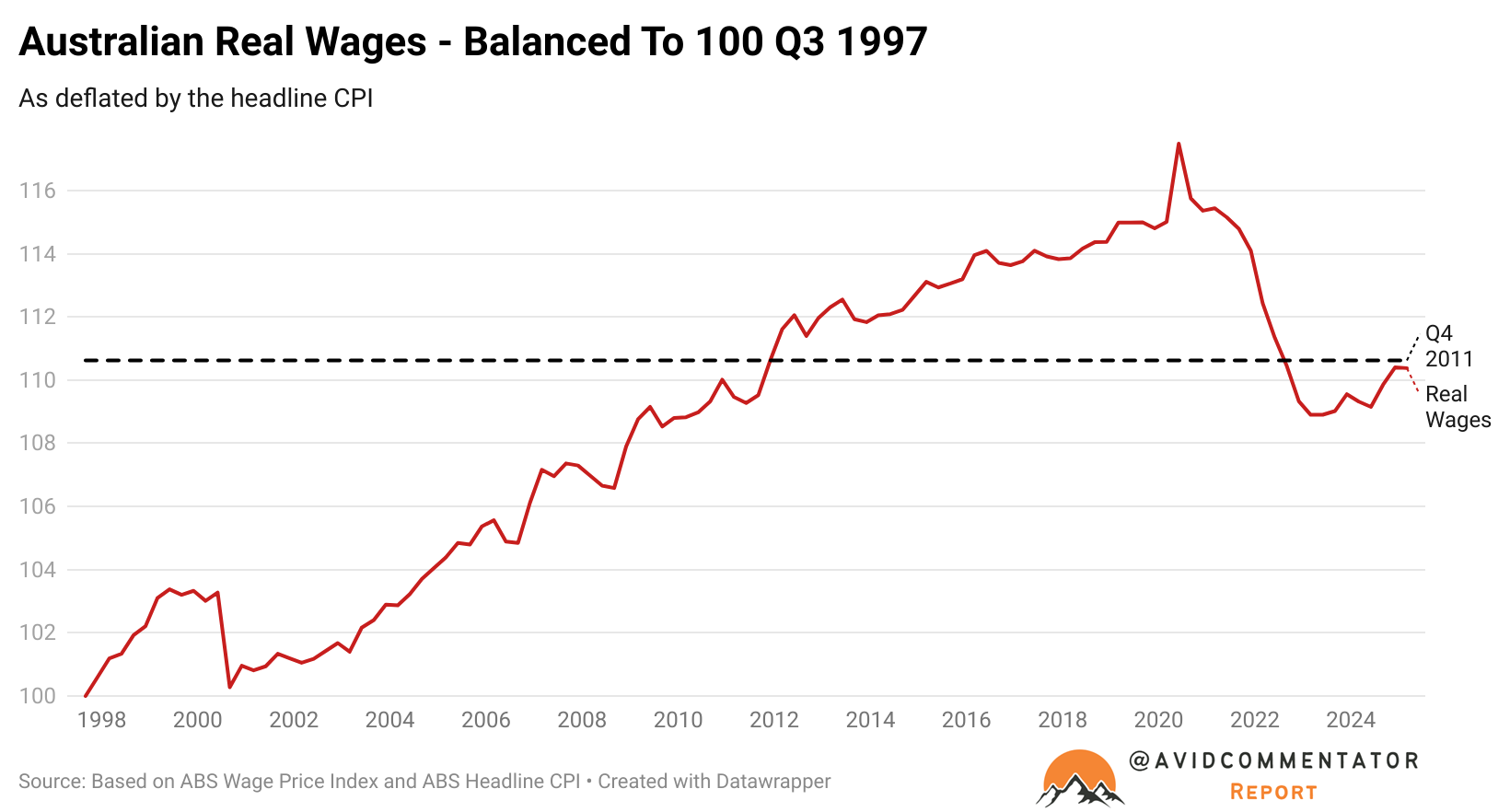
Meanwhile, growth in the economy in per capita terms has contracted in 9 of the last 12 quarters, despite the relative size of government remaining elevated and state and federal treasuries enjoying the bounty of higher levels of revenue from resources, partially as a result of the war in Ukraine.
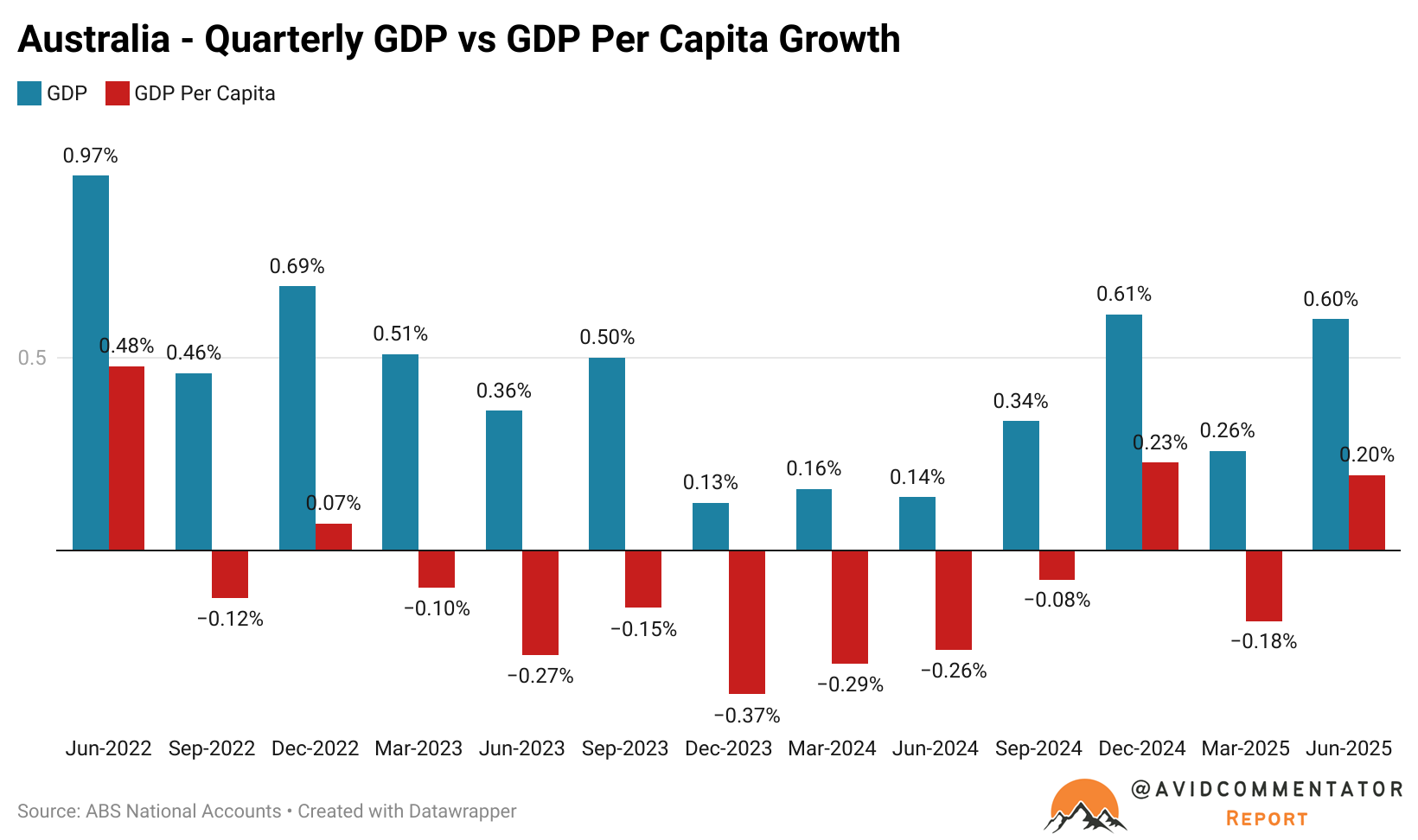
Yet when you begin to look at the numbers at a more granular household level, a divergence between different age demographics appears. Some are seeing what is more or less the type of robust growth emblematic of prior decades, while others are going backwards.
According to figures from Commbank IQ from earlier in the year, which have then been adjusted for inflation, the only age demographics that still had positive annual rates of real household consumption growth (ex-housing) were those 65 and over.
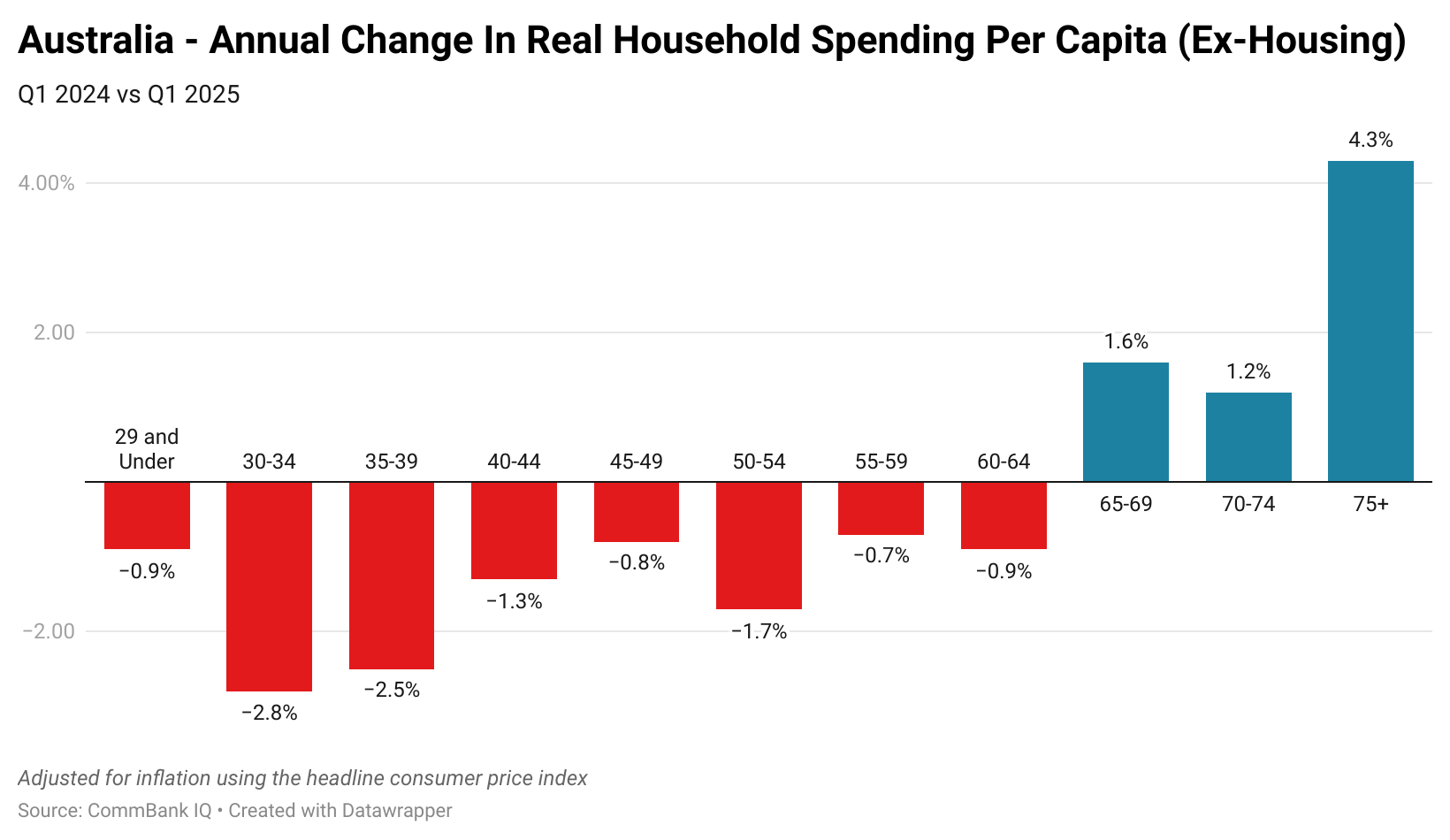
This is a trend that has been present in data from the Reserve Bank, Productivity Commission, and ABS for years to varying degrees. Older demographics are getting ahead, while younger demographics tend to be stagnating or falling behind.
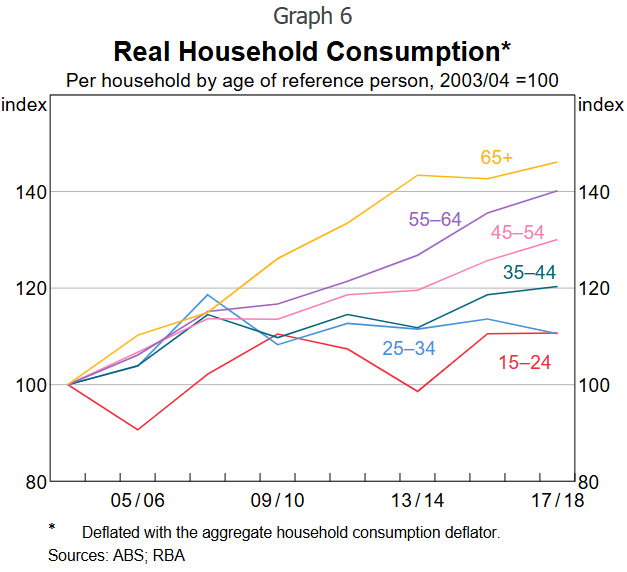
Source: RBA
The era of high inflation brought about by the pandemic and government stimulus has been particularly unkind to the fortunes of the 25 to 29 and 30 to 34 age demographics.
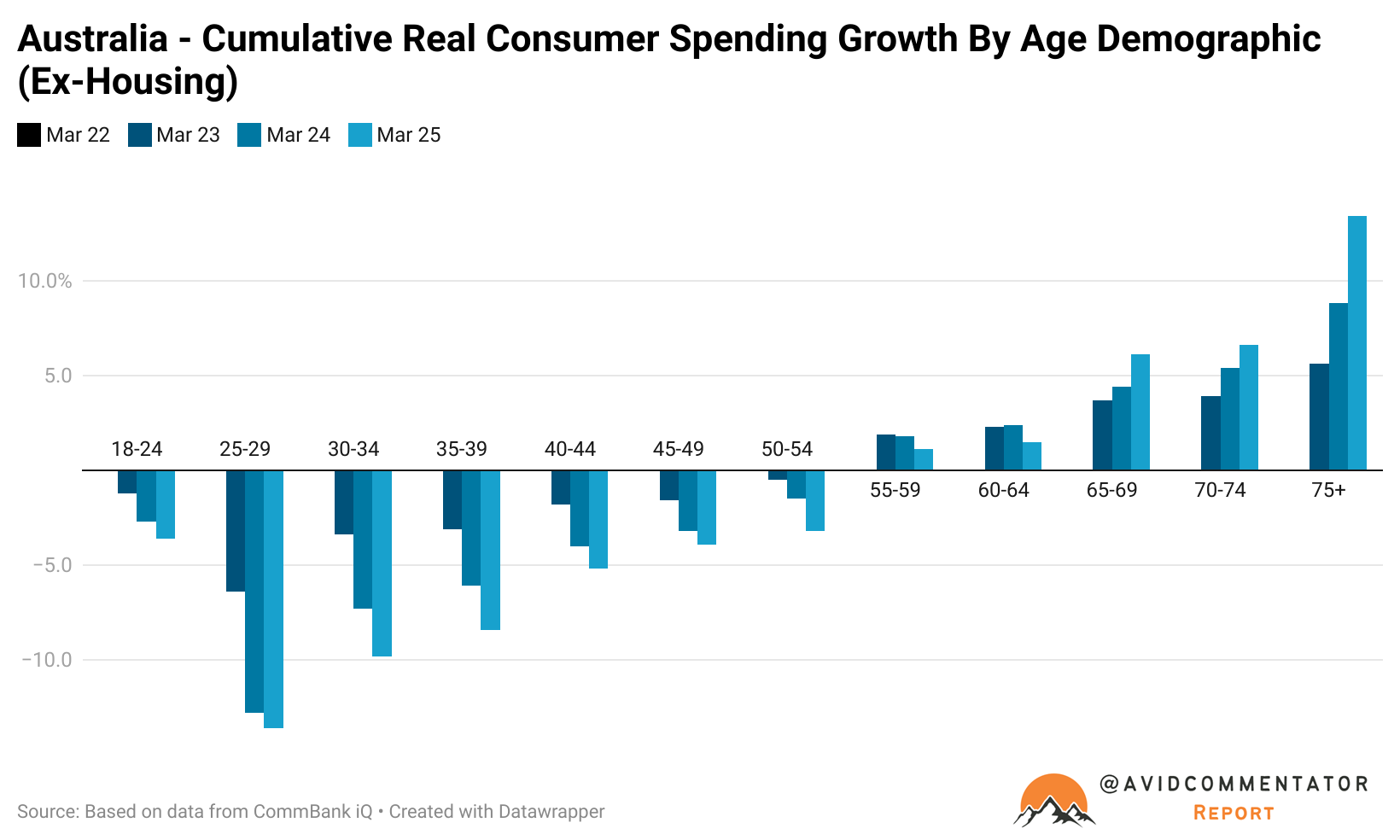
While the nation’s economy stopped working for its young long ago, that hasn’t meant it was bad for everyone.
For more affluent Australians, particularly older demographics with wealth, it has been a time of strong consumption growth, backed by growing net worth, sizable inheritances, expanding superannuation balances, and higher housing prices.
For better or worse, these demographics have taken over as the engine of growth for the consumer economy.
One of the major issues going forward is how the economy rebalances to a more sustainable even keel, in which younger demographics prosper alongside older, more affluent Australians who are doing perfectly well with the system we already have.
Although there is a lack of political willingness to challenge the current status quo, the economy is increasingly requiring change as it strives to shift towards a more market-oriented approach, following more than a decade of relying heavily on the government for growth.
Ultimately, the easy answers lack political support, and politically acceptable solutions are extremely challenging.

